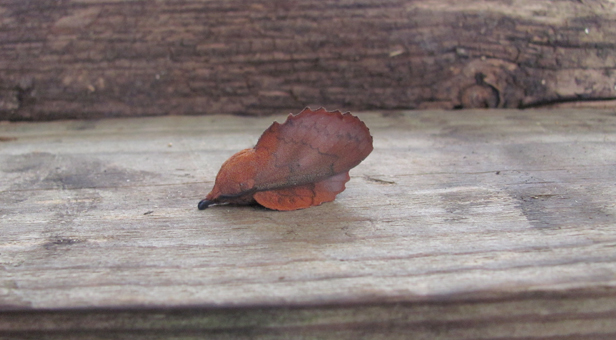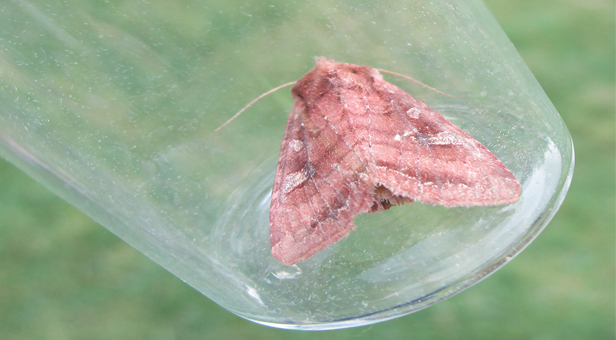
Lappet moth © Mike Cook

The Splendid Brocade © Debbie Billen
Results from a recent moth survey at Dorset Wildlife Trust’s (DWT’s) Kingcombe Centre, have revealed a record number of macro moth species found in the area, including the rare Lappet moth and Splendid Brocade, a species which was new to the UK just 17 years ago.
Amongst the 113 different species found from six different moth traps on the Dorset Butterflies and Moths course, highlights included the Splendid Brocade, which still has fewer than 150 records in the UK. This species is in the early stages of colonisation in the UK following migration from mainland Europe. The Lappet moth is a species in severe decline, and now only very rarely seen.
DWT’s Kingcombe Centre Visitor Experience Officer, Nicola Hawkins said, “The weather was near perfect – hot, humid and overcast most nights – and these finds were really sensational. Many people don’t realise that moths can be really stunning in colour, shape and size. Attending one of our moth workshops is a great chance to see the variety of moths on your doorstep, and also learn about how important they are to the ecosystem.”
Enthusiasts from all over the country attended the Dorset Butterflies and Moths Course in July, where these sightings were made, and were delighted to experience such a diverse find of moths, including gems like Small Mottled Willows, migrants from North Africa and the Mediterranean.
Course attendee, Mike Cook said, “I really enjoyed the butterflies and moths course. The bedrooms and other facilities were excellent and the food was fantastic. The course included visitors from afar, but it was also nice to see local people come along and introduce them to what could become a fascinating and worthwhile hobby. As Northerners, we enjoy attending moth courses in the South of England, seeing all the species that we never see at home.”
The arrival of autumn will bring a whole host of moths, with some amazing camouflage of autumn colours. To book your place on the next Autumn Moths course with expert David Brown (Friday 2 October – Tuesday 6 October), visit www.kingcombe.org or phone 01300 320684.






